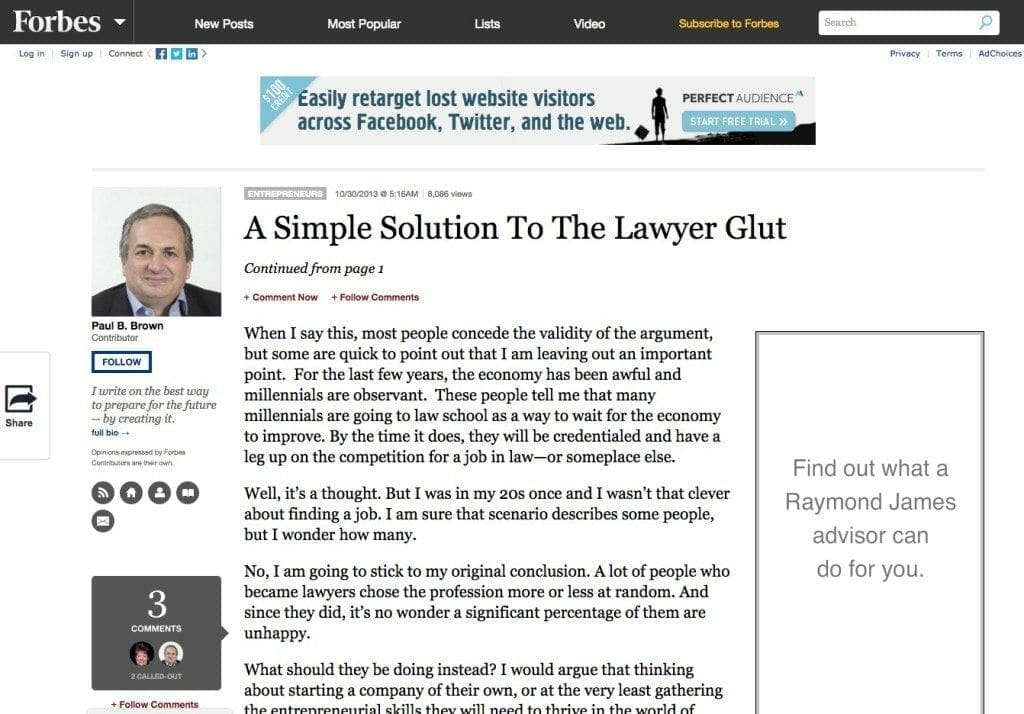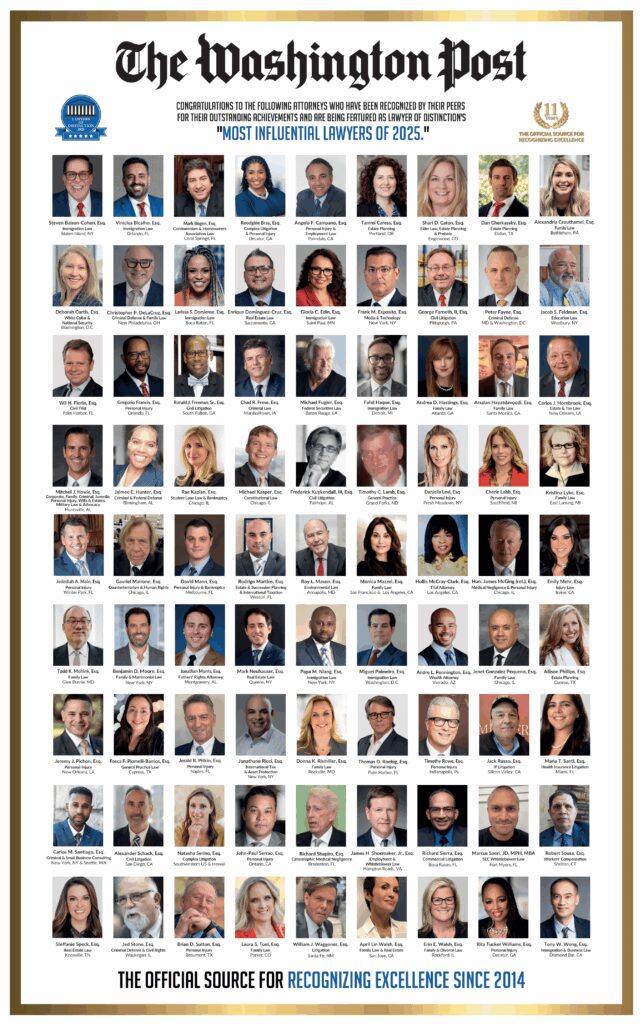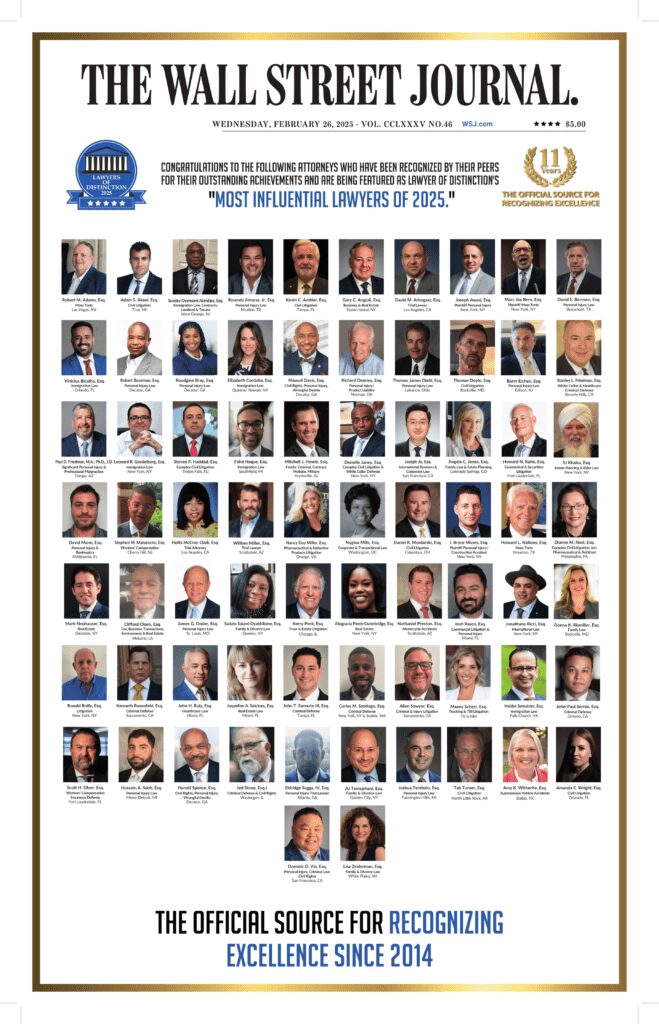– Article from Forbes.com
John A. Byrne runs the very good (and clever) TippingTheScales website devoted to law schools. He asked me, a proud member of the Rutgers University Law School Class of ’83, what I thought about the lawyer glut. Here’s what I told him.
As a law school graduate and member of the bar in two states, I know I am supposed to feel sorry when I am confronted these days—no matter where I turn—by another article; blog or book that says the kids who are currently studying for their juris doctorate, or those who have recently passed the bar exam, are doomed to a life of scrambling for clients and eking out a living.
By every reputable account there are too many lawyers. The best guess is there are about 1.1 million people have graduated law school. That’s one out of about every 300 Americans. One lawyer to serve every 300 people? Common sense tells you that the market can’t support that many, no matter how much corporate, government and non-profit work you think is out there.
Everything I’ve read about the lawyer glut focuses on how the nation’s law schools are making it too easy to get in; how the profession presents prospects in too rosy a light, and how no one has had the guts to say our nation is over-lawyered and as a result a significant percentage of attorneys are unhappy with their career choice.
Well, I agree we have a lawyer glut. But I think we are pointing our collective fingers at the wrong place.
Dear Law Student: You are to blame
Now, I was only a B- law student at a B- law school, but I think the problem is far simpler than everyone is making out to be. The problem isn’t the nature of our judicial system, the courts, the law schools or the law firms. The reason we have too many lawyers is too many people are going to law school.
Let me go back up 30 years.
I went to Rutgers Law School at night and it was ridiculously hard to get into back then. (Operating a night school was a pilot project and Rutgers was only going to take a small number of students in the early days of the experiment.) Even though I graduated a good state college with honors and did well on the LSATs, I was wait listed….getting the word I was in just before classes started.
There were 60 of us who started. Some 40 graduated and 30 of us passed the bar on the first try.
Of those 30 kids, only three of us should have been lawyers.
There was Rob who would tell us in all seriousness the tax code was a beautifully constructed, totally symmetrical, document. He is a partner, not surprisingly specializing in taxation, at a big Manhattan firm today. Karen loved bond law. She is chief bond counsel for one of the municipal port authorities on the east coast and Bill thought 34% of all Americans probably deserved to be in jail. He is first assistant district attorney in one of our larger cities and his name keeps surfacing as a mayoral candidate.
The rest of us? Just about everybody found a job working as a lawyer. A random survey shows they think it is an okay way to make a living, but with the exception of Rob, Karen and Bill no one seems emotionally fulfilled.
So, why then did they (and I) go to law school? Well, then—like now I believe—the majority of students went because they didn’t know what else to do. They were smart, but unfocused when it came to understanding what they wanted to do for a living, once they were about to graduate college. Law school seemed like a good option for kids with good grades who weren’t sure what to do next.
When I say this, most people concede the validity of the argument, but some are quick to point out that I am leaving out an important point. For the last few years, the economy has been awful and millennials are observant. These people tell me that many millennials are going to law school as a way to wait for the economy to improve. By the time it does, they will be credentialed and have a leg up on the competition for a job in law—or someplace else.
Well, it’s a thought. But I was in my 20s once and I wasn’t that clever about finding a job. I am sure that scenario describes some people, but I wonder how many.
No, I am going to stick to my original conclusion. A lot of people who became lawyers chose the profession more or less at random. And since they did, it’s no wonder a significant percentage of them are unhappy.
What should they be doing instead? I would argue that thinking about starting a company of their own, or at the very least gathering the entrepreneurial skills they will need to thrive in the world of work in the years ahead.
If they did, they in particular—and the economy in general—would be better off.







